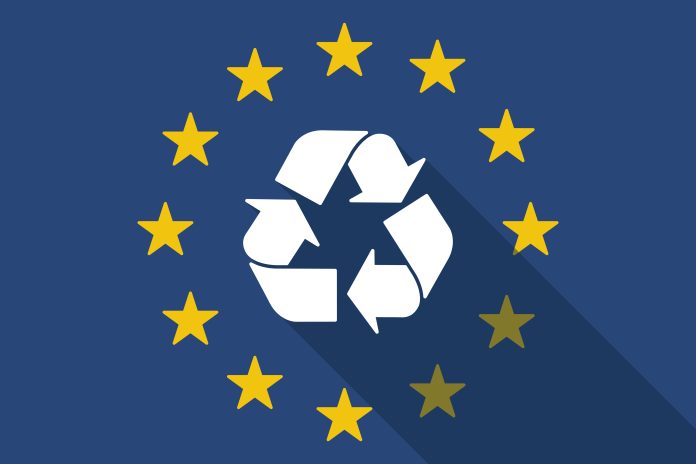The advent of PPWR 2024 is set to transform business operations across Europe, compelling companies to rethink their approach to packaging by prioritising sustainability and compliance with stringent regulatory standards.
This paradigm shift demands innovation in design and materials, urging businesses to align with new recyclability norms and extended producer responsibility. As industries brace for these changes, questions arise regarding the adaptations required in supply chains and the role of digital infrastructure.
Understanding the strategic implications of PPWR 2024 presents both challenges and opportunities for businesses aiming to thrive in this evolving landscape. How will firms navigate these uncharted waters?
PPWR 2024 explained
The Packaging and Packaging Waste Regulation (PPWR) 2024 represents a pivotal legislative development aimed at transforming packaging practices across Europe to foster sustainability and reduce environmental impact.
This thorough framework mandates that all packaging be designed for recyclability by 1 January 2030, thereby enhancing the recyclability performance of packaging materials. The regulation is a critical step toward minimising waste and promoting a circular economy, requiring companies to markedly adapt their packaging strategies.
Central to the PPWR is the introduction of extended producer responsibility (EPR) schemes, which hold brand owners accountable for the entire lifecycle of their packaging waste. This approach necessitates a shift in operational strategies, compelling businesses to reconsider their packaging designs and materials.
Companies must integrate sustainable packaging solutions to comply with the regulation, which also sets ambitious recycled content targets. By 2040, contact-sensitive packaging must contain 30% recycled content, while single-use beverage bottles require 65%, driving an increased demand for recycled materials.
Furthermore, the PPWR enforces new reporting and labelling obligations, enhancing transparency regarding the recyclability and environmental impact of packaging. This aspect of the regulation guarantees that consumers and stakeholders are better informed about the sustainability of packaging products. In addition, specific single-use packaging formats, including certain retail packaging for fresh produce and individual portion packaging in the hospitality sector, will be banned, prompting innovation in sustainable packaging alternatives.
Through these measures, the PPWR 2024 aims to reshape packaging practices markedly, driving European businesses toward a more sustainable future.
The end-to-end impact on packaging manufacturers
As European businesses adjust to the mandates of PPWR 2024, packaging manufacturers find themselves at the forefront of this legislative shift.
The PPWR demands all packaging to be recyclable by 2030, compelling manufacturers to innovate in packaging design and material selection to guarantee compliance. This regulation places a spotlight on the recyclability of packaging, pushing manufacturers to transform their processes markedly.
Central to this transformation is the introduction of minimum recycled content targets. For instance, a 30% recycled content quota for contact-sensitive plastic packaging will necessitate substantial adjustments in material sourcing and production processes. These targets are designed to reduce environmental impact and encourage the use of sustainable materials throughout the supply chain.
Consequently, manufacturers must enhance collaboration with suppliers and waste management operators to guarantee that the entire supply chain aligns with PPWR’s compliance requirements.
Moreover, introducing eco-modulated fees based on the environmental footprint of packaging will economically incentivise manufacturers to reduce packaging complexity. This financial implication requires strategic shifts towards simpler, more sustainable designs to minimise costs and meet compliance standards.
In essence, PPWR 2024 mandates will require packaging manufacturers to adopt innovative solutions, redesign product lines, and foster collaborative efforts across the supply chain to maintain market access and fulfil compliance obligations. The shift towards sustainable practices is not just regulatory but also an opportunity for innovation and leadership in sustainability.
How small and medium businesses can keep up
While manoeuvring through the complexities of the PPWR 2024, small and medium businesses (SMBs) must strategically align their operations to confirm compliance and secure their position in the EU market.
The packaging waste regulation mandates that all packaging be recyclable by 2030, a requirement that SMBs cannot afford to overlook. To meet these standards, SMBs should focus on proactively integrating sustainable packaging practices, such as:
- Prioritise compliance: SMBs must make certain that their packaging solutions are recyclable to avoid penalties and maintain EU market access. This involves a thorough self-assessment to identify gaps in current practices and shift strategies to sustainable packaging.
- Secure recycled materials: To adhere to the PPWR 2024’s minimum recycled content quotas—30% for contact-sensitive packaging by 2030—SMBs should establish robust relationships with suppliers of recycled materials. This foresight will guarantee a steady supply and help maintain compliance.
- Collaborate across departments: Effective adaptation to the new regulations requires collaboration across design, procurement, and operations. This interdisciplinary approach will drive innovation and enhance packaging sustainability.
- Invest in digital infrastructure: Proactive investment in digital solutions can help monitor compliance, improve process efficiency, and reduce costs. Digital tools enable SMBs to track recycling rates and optimise their supply chain, aligning with the packaging waste regulation’s goals.
Extended producer responsibility: What it means for supply chain accountability
Under the Packaging and Packaging Waste Regulation (PPWR) 2024, Extended Producer Responsibility (EPR) introduces a transformative approach to supply chain accountability by mandating that producers assume full lifecycle responsibility for their packaging.
EPR’s impact on supply chains is profound, as it holds producers accountable for the disposal and recycling of their packaging. This accountability drives companies to reassess their supply chain strategies, focusing on the design and materials used in packaging to meet stringent compliance standards.
As a result, businesses are incentivised to prioritise sustainability, leading to a shift in market dynamics where competitive advantages are gained through sustainable practices.
Furthermore, by 2026, producers must meet an 80% separate collection target for packaging waste or implement Deposit Return Schemes (DRS). Achieving these targets necessitates enhanced collaboration across supply chains to guarantee efficient recycling processes. Companies that successfully adapt to these requirements will benefit from priority access to recycled materials, further reinforcing the importance of sustainable practices.
Opportunities in reusable and recyclable packaging
In response to the PPWR 2024’s ambitious mandates, businesses across Europe are presented with substantial opportunities to innovate in the domain of reusable and recyclable packaging.
The regulation’s requirement that all packaging must be recyclable or reusable by 2030 encourages companies to explore sustainable practices that not only comply with legal standards but also enhance their competitive edge. This shift presents an opportunity to rethink packaging design and materials, fostering a culture of innovation and environmental stewardship.
Several opportunities arise for businesses willing to embrace these changes:
- Recyclable packaging design: By 2030, all packaging must be designed for recyclability, driving innovation in material science and engineering. Companies can develop new packaging solutions that meet these requirements, ensuring compliance and promoting sustainability.
- Investment in reusable systems: With targets requiring 10% of grouped packaging to be reusable by 2030, investment in reusable systems becomes imperative. This shift can reduce waste and operational costs, supporting long-term sustainability goals.
- Eco-modulated fees: The introduction of eco-modulated fees based on environmental impact incentivises companies to adopt sustainable packaging practices. By minimising unnecessary packaging, businesses can greatly lower their financial burden and enhance their sustainability profile.
- Extended producer responsibility (EPR) schemes: An expanded EPR scheme mandates businesses to cover full waste management costs. This necessitates designing more efficient and recyclable packaging, thereby reducing compliance costs and fostering a circular economy.
Strategic steps towards sustainable operations
As businesses capitalise on the opportunities presented by the PPWR 2024, they must also strategically prepare for sustainable operations to guarantee long-term success. The packaging waste regulation mandates that all packaging be recyclable by 2030, compelling companies to innovate in their packaging designs.
Shifting mono-material packaging is vital, ensuring that products meet minimum recycled content quotas, such as 30% for contact-sensitive plastic packaging. This change not only aligns with regulatory compliance but also enhances sustainability credentials.
To effectively navigate these changes, businesses must anticipate operational cost increases associated with compliance fees and sourcing high-quality recycled materials. By investing in digital infrastructure, companies can streamline supply chains, enabling precise tracking and monitoring of recycling rates. This transparency will serve as a competitive advantage as consumers increasingly value sustainability.
Furthermore, a proactive approach to continuously monitoring legislative updates is essential. Companies should regularly reassess their packaging strategies to adapt to evolving requirements and mitigate non-compliance risks. Embracing digital solutions facilitates enhanced collaboration across supply chains, fostering innovative approaches to meet ambitious regulatory targets.
Strategic partnerships with suppliers specialising in recyclable materials and technology providers can also accelerate the shift. By integrating circular economy principles into their operations, businesses position themselves as leaders in sustainability. As the regulatory landscape evolves, those who adapt will not only comply with the PPWR but also enhance their market positioning across Europe.
This foresight will pave the way for resilient and environmentally conscious business models, ensuring long-term growth and success in a rapidly changing regulatory environment.









